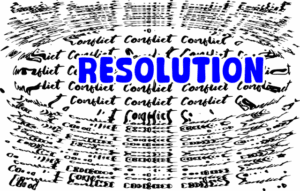Cognitive Behavioral Therapy (CBT) is a powerful stress relief therapy that targets negative thought patterns and behaviors, equipping individuals with healthier coping strategies for effective stress management. By identifying triggers, challenging distorted beliefs, and adopting techniques like relaxation exercises, mindfulness, and cognitive reframing, CBT helps build resilience and improves overall well-being. Integrating CBT practices into daily life offers lasting solutions for managing stress and enhancing mental health outcomes.
Cognitive-behavioral therapy (CBT) offers a powerful approach to managing stress, transforming lives by empowering individuals to overcome mental health challenges. This article delves into the science behind stress and its profound impact on well-being, highlighting the importance of identifying triggers and challenging negative thought patterns. You’ll discover CBT techniques for behavior modification, relaxation practices, and building resilience through cognitive reframing. Learn how integrating CBT into daily life provides lasting stress relief, supported by inspiring real-life success stories.
Understanding Cognitive-Behavioral Therapy for Stress Relief

Cognitive-behavioral therapy (CBT) is a highly effective form of stress relief that focuses on identifying and changing negative thought patterns and behaviors. By understanding and challenging distorted thinking, individuals can develop healthier coping strategies to manage stress effectively. CBT emphasizes the connection between thoughts, feelings, and actions, aiming to help clients replace unhelpful beliefs with more realistic and adaptive ones.
This therapy involves active participation from the individual, encouraging them to keep track of their thoughts and emotions during stressful situations. Through this process, individuals gain valuable insights into their thought processes and learn to recognize when they are engaging in unproductive thinking. By modifying these cognitive distortions, CBT equips people with the tools to reduce stress levels and improve overall well-being.
The Science Behind Stress and Its Impact on Mental Health

Stress is a natural response to various life challenges, but chronic or prolonged stress can significantly impact mental health. The science behind stress reveals that it activates the body’s fight-or-flight response, releasing hormones like cortisol and adrenaline. While acute stress can enhance focus and performance, sustained activation of this response over extended periods can lead to detrimental effects on both physical and psychological well-being. Elevated stress levels are linked to various mental health disorders, including anxiety, depression, and insomnia.
Cognitive-behavioral therapy (CBT) is an effective approach to managing and overcoming stress. CBT helps individuals identify and challenge negative thought patterns and behaviors that contribute to stress. By modifying these cognitive distortions, CBT facilitates a shift towards healthier coping mechanisms, enhancing resilience to stressful situations. Through this process, individuals can learn to manage their stress levels more effectively, leading to improved mental health and overall well-being. Stress relief therapy provides valuable tools for navigating life’s challenges, fostering better mental health outcomes.
Identifying Stress Triggers: A Key Step in CBT

Identifying your stress triggers is a crucial step in Cognitive Behavioral Therapy (CBT), a highly effective approach for managing stress and achieving stress relief. CBT encourages individuals to recognize patterns of thinking, feeling, and behaving that contribute to their stress levels. By understanding these triggers—whether they’re specific situations, people, or thoughts—you can begin to develop healthier coping strategies. This proactive approach equips you with the tools to navigate challenging circumstances more effectively, ultimately reducing the impact of stressors on your well-being.
Challenging Negative Thought Patterns with CBT Techniques

Cognitive-behavioral therapy (CBT) offers powerful tools to challenge and change negative thought patterns that contribute to stress. By identifying distorted or unhelpful thoughts, individuals can learn to question their validity and replace them with more realistic and positive alternatives. This process involves examining evidence for and against these thoughts, often revealing that they are not as absolute or harmful as initially perceived.
One key CBT technique is cognitive restructuring, where clients work with a therapist to reframe negative thoughts and beliefs. This involves recognizing when stress-inducing thoughts are based on assumptions, exaggerations, or all-or-nothing thinking. For example, instead of thinking “I always fail at everything,” a person can learn to challenge this thought by considering specific instances of success and acknowledging that mistakes are part of learning and growth, offering a more balanced perspective for stress relief therapy.
Behavior Modification Strategies for Effective Stress Management

Behavior modification strategies are a key component of cognitive-behavioral therapy for stress relief. These techniques focus on changing unhelpful thought patterns and behaviors that contribute to elevated stress levels. By identifying triggers and learning new coping mechanisms, individuals can effectively manage their reactions to stressful situations. For instance, relaxation exercises, deep breathing techniques, and progressive muscle relaxation are tools that help calm the mind and body, reducing overall stress.
One specific strategy is reappraisal, where individuals learn to view challenging situations from a different perspective, minimizing their emotional impact. Additionally, problem-solving skills training equips people with practical solutions to daily stressors. These strategies, combined with cognitive restructuring, empower individuals to challenge negative thoughts and replace them with more balanced and realistic ones, ultimately leading to better stress management.
Relaxation and Mindfulness Practices in Cognitive-Behavioral Therapy

In cognitive-behavioral therapy (CBT), relaxation and mindfulness practices are integral tools for managing stress. These techniques help individuals achieve a state of calm, allowing them to reframe their perspectives and challenge negative thought patterns associated with stress. Mindfulness involves focusing on the present moment, observing thoughts and feelings without judgment, which can significantly reduce anxiety and promote a sense of tranquility.
CBT incorporates various relaxation exercises like deep breathing, progressive muscle relaxation, and guided imagery. These practices enable individuals to physically and mentally unwind, easing tension and fostering a sense of control over their responses to stressful situations. By integrating mindfulness and relaxation into therapy sessions, CBT offers an effective stress relief therapy approach that empowers individuals to manage their mental health proactively.
Building Resilience through Cognitive Reframing

Cognitive-behavioral therapy (CBT) offers a powerful approach to managing stress by teaching individuals to challenge and change their thought patterns. Through cognitive reframing, CBT helps people identify and alter negative or distorted thinking that contributes to stress. By questioning these automatic thoughts and replacing them with more realistic and balanced perspectives, individuals can build resilience and develop healthier ways of coping.
This process involves recognizing unhelpful cognitive distortions like all-or-nothing thinking, catastrophizing, or jumping to conclusions. Once identified, these thought patterns can be reframed to promote a more positive and adaptive mindset. For example, instead of viewing a single setback as an overwhelming failure, reframing might encourage the individual to see it as a minor obstacle that can be overcome, fostering a sense of control and empowerment. This cognitive shifting is a key mechanism in CBT for stress relief therapy, enabling individuals to navigate challenging situations with greater ease and composure.
Integrating CBT into Daily Life for Long-Lasting Stress Relief

Integrating cognitive-behavioral therapy (CBT) into daily life is a powerful strategy for achieving long-lasting stress relief. CBT encourages individuals to identify and challenge negative thought patterns that contribute to stress, replacing them with healthier, more adaptive ways of thinking. By learning to manage one’s thoughts and emotions effectively, people can develop coping mechanisms that stand the test of time. This process involves practical techniques such as mindfulness exercises, behavioral activation, and cognitive restructuring, which are designed to be incorporated into everyday routines.
For instance, setting aside dedicated time each day for relaxation or engaging in regular physical activity, two common CBT strategies, can significantly reduce stress levels over time. Additionally, maintaining a consistent sleep schedule and practicing good self-care habits, like eating nutritious meals and connecting with loved ones, are essential components of this integration. By making these changes part of one’s routine, individuals can foster resilience to stress, ensuring that the benefits of CBT endure beyond the therapy sessions.
Real-Life Success Stories: Transforming Lives with CBT

Many individuals have found real-life success and transformative changes through Cognitive Behavioral Therapy (CBT), a highly effective approach to stress relief therapy. CBT empowers people to recognize and challenge negative thought patterns, replacing them with healthier alternatives that foster resilience against stressful situations. By learning to manage their thoughts and emotions effectively, individuals can develop coping strategies that work for them in the real world.
Success stories abound, with countless individuals sharing their journeys of overcoming anxiety, depression, and chronic stress. These personal narratives highlight the power of CBT in helping people navigate life’s challenges more competently. From career professionals to students and individuals dealing with life transitions, CBT has proven its versatility in treating a wide range of mental health concerns, ultimately improving overall well-being and quality of life.
